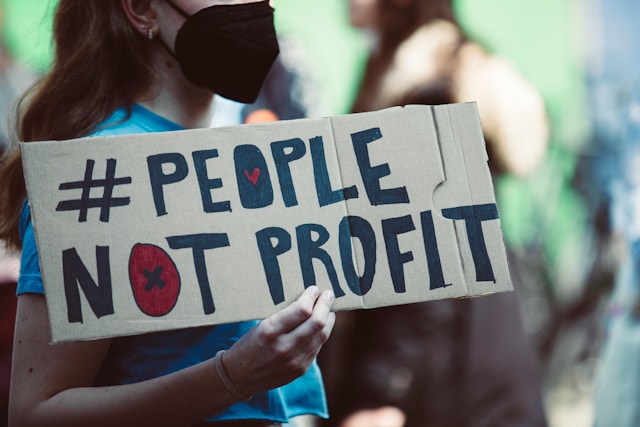You’ve most likely heard the word “ethical” uttered in the corporate world at least a handful of times so far, as it has become quite popular over the last few years. Many seek to attribute the label to their processes and procedures, looking for ways to improve their perception among customers. However, for many, the word has become a buzzword devoid of actual meaning, something that corporations claim to be without having any way to prove that they’re actually ethical.
It isn’t a new thing at all; the same situation occurred (and in many cases continues to occur) in the case of sustainability measures. Over the years, numerous companies have been accused of greenwashing, a concept that refers to the fabrication or exaggeration of the kind of sustainability measures that a company has introduced into its processes. However, just because some businesses sought to mislead the public doesn’t mean that there are no businesses out there that actually take the environment and sustainability seriously.
And while some definitely want to brand themselves as ethical just for the advantages, there are also many companies that are actually focused on implementing and fostering ethics. But what exactly makes a business ethical in the first place?
Business ethics
The concept of business ethics refers to the principles that guide decision-making processes. To ensure that you meet the standards, you need to be transparent, open to feedback, consider the impact on employees, customers, and society as a whole, as well as have the ability and strength to reflect on your past experiences and understand what you could have done better. If it sounds like a handful, that’s because it is, but nobody said that the things that are worth it will be easy and straightforward.
Promoting ethical conduct is beneficial for both companies and the larger community, though, both during the short- and long-term. The shareholders should have the same values and perspectives as you if things are to work.
The suppliers
Ethical business suppliers are those who seek to prioritize sustainability and eco-friendly practices, guarantee fair labor and transparency, and work against corruption and other illicit practices. For instance, food companies should aim to buy cocoa ingredients from providers that source their cocoa beans through sustainable programs exclusively, and who can guarantee that all farmers are well-paid. The industry has been dealing with shortages lately, as the effects of climate change wreak havoc on the crops and reduce yields.
Erratic rainfall patterns followed by extreme and prolonged drought, deforestation, soil degradation, and pathogens such as the Swollen Shoot Virus cause considerable crop loss. Due to poverty, many farmers are forced to maintain old trees that are less productive, while exploitative practices such as child labor remain an issue as families struggle to meet basic needs and survive. The suppliers that operate in such environments cannot be regarded as ethical. Offering fair prices, maintaining reasonable expectations, and making sure all your bills are paid on time are the foundations of treating your suppliers in an ethical manner.
The customers
The long-term satisfaction of your customers is crucial for the well-being of your business. When you manage to keep up with their expectations and deliver the products and services they want to see from you, your revenue streams will be consistent, and you will be able to come up with plans that prioritize growth and development. Delivering consistent quality is of paramount importance, and dropping the standards shouldn’t be done, as it will definitely cause people to leave your brand behind and move to your competitors instead.
Ofi is one of the suppliers you can always count on to deliver quality, whether you require butter, different types of cheese, buttermilk, spices (ranging from the standard garlic, onion, and pepper to several different herbs, spice blends for bakeries, beverages, dressings, or snacks, and sauces), nuts, coffee, or cocoa products. Apart from the quality of your goods, you must also be prepared to deliver when it comes to customer service and provide accurate information at all times.
Your business culture
Creating an ethical business culture won’t happen overnight. You need to be able to build things slowly, over time. That’s the only way to make sure they last so that you can continue improving over time as well. Eliminating all double standards from your team and cultivating honest communication is a must. Managers and supervisors should never get preferential treatment, so that nobody feels discriminated against. The work environment must be respectful and aligned with positive values so that the employees can identify themselves with the aspects that drive the organization.
Respecting the rights and dignity of the workers should be a given, and the space should feel safe to make mistakes (within reason, of course), take risks, offer constructive criticism, and admit you need help. If your employees interact with or notice anything that could be classified as unethical or even illegal conduct, they should feel safe to report it. Discrimination and harassment can, unfortunately, still occur in workplaces, and many victims feel apprehensive when it comes to reporting the incidents out of fear that retaliation will follow.
The importance of business ethics
Moral disengagement is one of the main issues that can arise from ignoring ethics. The concept refers to a scenario in which cognitive mechanisms are used to avoid guilt and convince oneself that certain moral standards don’t apply in a given situation. As a result, ethical behaviors can appear much less harmful, and personal commitments can be prioritized over shared principles and beliefs. Implementing ethics as a pillar of your business will be a fairly complex task when you consider that the agency you have will inform how you act, and place the responsibility for your actions on your shoulders.
You will have to ask yourself questions all the time and encourage your team to do the same. Discussing things can prevent you from falling into the trap of justifying potentially problematic measures, without making you reluctant to carry out tough but ethical actions.
Moving towards a more ethical business landscape takes consistent effort. Being intentional about it is the only way to obtain the right results.









